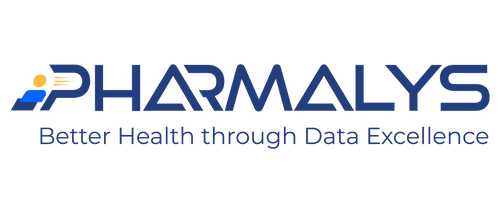In recent years, the global landscape of clinical research (CR) has been evolving, with Africa emerging as a vital player in this field. Despite being home to a wealth of diverse populations and disease burdens, the continent remains underrepresented in clinical trials. Organisations like Pharmalys are working tirelessly to change this narrative, championing the importance of including Africa in the CR dialogue.
As highlighted by various experts, Africa’s participation in clinical trials is not where it should be. A significant portion of research occurs outside the continent, leading to missed opportunities for local communities to benefit from cutting-edge therapies. This disparity emphasises the need for a robust CR ecosystem in Africa, one that is not only inclusive but also supportive of local talent and resources.
Why We Need To #CountAfricaIn for Clinical Research
To date, the majority of health sciences research has taken place in the Global North. As of 2018, less than 1% of scientific articles published globally each year include at least one author based from an African institution – a staggering imbalance.
In recent years, international organisations such as the African Union, WHO, and the World Bank have called for greater political and economic investment in health sciences research across Africa. Several prominent reports have also raised awareness of the so-called 10/90 gap: only a 10th of global expenditure on health research is directed toward issues affecting the poorest 90% of the world’s population.
There are two key reasons why investing in health sciences research in Africa is particularly important from a developmental perspective.
First, promoting a strong health sciences sector, alongside broader efforts to build a robust research and development landscape, can help reduce many African economies’ reliance on primary commodities and agriculture. This is essential for creating knowledge-based economies that support long-term macroeconomic growth. In 1990, the Commission on Health Research and Development stated that strengthening research capacity in low- and middle-income countries (LMICs) is ‘one of the most powerful, cost-effective, and sustainable means of advancing health and development’.
Second, health sciences research can directly improve health outcomes, social welfare, and poverty reduction through the domestic application of its findings. The 2013 World Health Report stressed the importance of all nations becoming producers, users, and consumers of health sciences research.
Africa offers some of the most favourable conditions for clinical trials. The continent is home to one of the most genetically diverse populations on the planet and faces both communicable and non-communicable diseases, many of which are endemic in other parts of the world. Africa is home to nearly one-sixth of the world’s population and bears roughly a quarter of the global disease burden, affecting around one billion people. The COVID-19 pandemic has further exposed healthcare inequities.
The insufficient representation of racial and ethnic minority groups in research not only raises scientific concerns but also presents ethical dilemmas. It calls into question the applicability of study findings, impedes the ability of clinical research professionals to monitor disparities, and hinders efforts to tailor governmental, clinical, and community interventions to achieve health equity for all.
By including African countries in global clinical research efforts, the continent can gain access to innovative diagnostic and treatment methods, cutting-edge technologies, and sustainable solutions to address both infectious and non-communicable diseases – ultimately making healthcare more efficient and equitable across Africa.
Barriers to Clinical Trials in Africa
As interest in advancing clinical trial conduct in sub-Saharan Africa grows, there is an increasing need to strengthen pharmacovigilance systems and bolster the capacity of Ethics Committees, regulatory bodies, and clinical research personnel in the region. Effective pharmacovigilance systems are crucial not only for monitoring safety issues with new interventions but also for protecting populations and building public trust in clinical research and health systems.
To conduct clinical research at the highest international standards, approvals from competent authorities are required. Research Ethics Committees (RECs) play a pivotal role in this process by providing independent evaluations of proposed research, ensuring it is planned and conducted in line with ethical principles, standards, and regulations, in a timely manner. The complexity of research designs has increased over the past two decades, leading to a greater demand for REC members to have the technical expertise necessary to review these more intricate studies. Unfortunately, a lack of expertise has been identified as a significant barrier to conducting clinical trials in developing countries. Chapman et al highlighted that many RECs struggle to evaluate and oversee complex study designs, such as innovative phase I trials, due to a lack of technical competence. Additionally, the schedule for review process often fails to meet the intended schedule, creating challenges for researchers who face strict timelines and budget constraints from funders.
The lack of physical infrastructure, inadequately trained personnel, and weak institutions in countries with high disease burdens further complicates efforts to establish a strong track record in clinical research, making it difficult to compete for international funding.
Pharmalys’ Commitment to #CountAfricaIn
At Pharmalys, we recognise the vital role that CR plays in enhancing health outcomes across Africa. Our commitment to #CountAfricaIn and advance this field has been the cornerstone of our operations since our founding in 2008. We are dedicated to developing robust resources and infrastructure that empower local researchers to excel in their work, conducting capacity building programmes that nurture talent and foster collaboration among healthcare professionals, institutions, and partners. Our focus extended beyond conducting research in 2023 when we launched PACE (Pharmalys Academy of Clinical research Excellence) (https://pace-cr.com/ ) an innovative educational programme combining online classes with on-site learning, designed to ensure job ready CR professionals upon completion.
The Next Steps
Local competences and infrastructures for clinical research in Africa are being upgraded to meet international quality standards, ensuring that clinical trials adhere to global regulations and guidelines. Strengthening Africa’s research capacity has proven essential for improving self-sufficiency, increasing preparedness for future public health emergencies, and bolstering the fight against endemic infectious diseases.
Looking ahead, it is crucial for stakeholders in the healthcare and pharmaceutical sectors to prioritise Africa’s inclusion in CR initiatives. By leveraging local expertise and resources, we can increase the relevance of clinical trials and help secure a healthier future for the continent.
Marieme Ba
CEO of Pharmalys Ltd, and PACE Ltd











